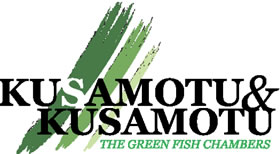The United Nations migration agency has reported that migrants from West Africa are being bought and sold openly in modern-day slave markets in Libya.Trafficked people passing through Libya have previously reported violence, extortion and slave labor. But the new testimony from the International Organization for Migration suggests that the trade in human beings has become so normalized that people are being traded in public.
Among migrants from West Africa being sold in Libyan slave markets, Nigerians head the list, a survivor who returned recently has said. Since the overthrow of the late dictator, Muammar Gaddafi, the North African country has plunged deeply into a state of anomie. Some citizens of the highly fractious nation have resorted to selling human beings, especially people attempting to make the boat trip to Europe.
The north African nation is a major exit point for refugees from Africa trying to take boats to Europe. However, migrants with insufficient cash or who usually have no valid travel documents are particularly vulnerable to kidnappers and human traffickers who capture, imprison, sell off or kill them brutally.
A Nigerian survivor, James who had embarked on the trip to Europe crossed northern Nigeria into Niger and Libya through the desert was lucky to have returned home after two months of harrowing experience in sparsely populated but highly violent country. He recounted how he had been sandwiched with 240 other emigrants on an inflated raft and put out on the Mediterranean at 12 midnight.
“Few minutes into the journey, we were approached by some men in a speed boat. Suddenly they shot at our raft which quickly filled with water. They left us to drown, but we managed to get to shore. On the shore, we were rounded up by gunmen who took us to a remote island where they kept us in what looked like prison cells. There I saw several Nigerians. In fact, for every West African, there were at least five other Nigerians.
” In the cells, we were beaten with iron rods, Nigerians got more beatings because our captors said were too many and stubborn. We had no food, no water, and no bath for weeks. Sometimes, we got a spoon of rice served on our palms. We drank our own urine and passed excreted in the cell. Many died from starvation and disease, but their corpses were usually not removed until about a week. Later, we were moved to another location where we were sold off into slavery. Those who were not fit for sale were shot on the spot.”
One 34-year-old survivor from Senegal said he was taken to a dusty lot in the south Libyan city of Sabha after crossing the desert from Niger in a bus organized by people smugglers. The group had paid to be taken to the coast, where they planned to risk a boat trip to Europe, but their driver suddenly said middlemen had not passed on his fees and put his passengers up for sale.
“The men in the pick-up van were brought to a square, or parking lot, where a kind of slave trade was happening. There were locals – he described them as Arabs – buying sub-Saharan migrants,” said Livia Manante, an IOM officer based in Niger who helps people wanting to return home.
After his sale, the Senegalese migrant was taken to a makeshift prison of a kind that has been well documented in Libya. Those held inside are forced to work without pay, or on meagre rations, and their captors regularly call family at home demanding a ransom. His captors asked for 300,000 west African francs (about £380), then sold him on to a larger jail where the demand doubled without explanation.
Men who lingered there too long without the ransom being paid were taken away and killed, he said. Some wasted away on meagre rations in unsanitary conditions, dying of hunger and disease, but overall numbers never fell. “If the number of migrants goes down, because of death or someone is ransomed, the kidnappers just go to the market and buy one,” Manente said.
His terrified family began scraping together loans. As he spoke fluent English, French, and some local languages, he translated for his jailers to win time for relatives to collect the money.
Many other migrants flee Libya with similar stories, said Giuseppe Loprete, chief of mission at IOM Niger. “It’s very clear they see themselves as being treated as slaves,” he said.
Even growing international awareness of the problems migrants face is being exploited. IOM has had credible reports of criminals posing as aid groups that help migrants to lure in people who have escaped or bought their freedom and want to return home.
The organization is working to spread awareness across west Africa of the horrors of the journey through the personal stories of those who return. Though most migrants know the boat trips to Europe are extremely risky, fewer realize they may face even worse dangers in Libya before even reaching the coast.
“Tragically, the most credible messengers are migrants returning home with IOM help,” said spokesman Leonard Doyle. “Too often they are broken, brutalized and have been abused. Their voices carry more weight than anyone else’s.”
